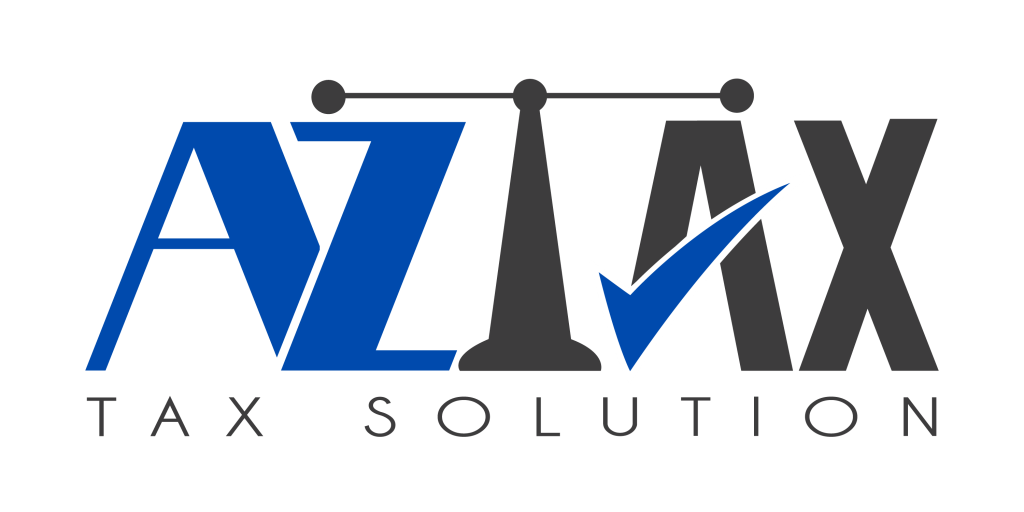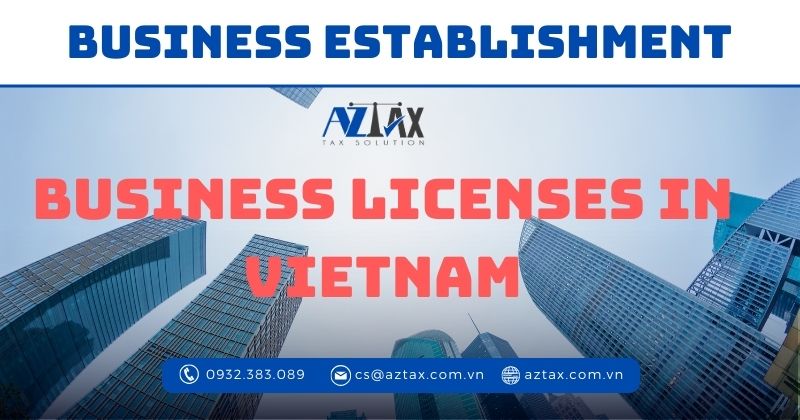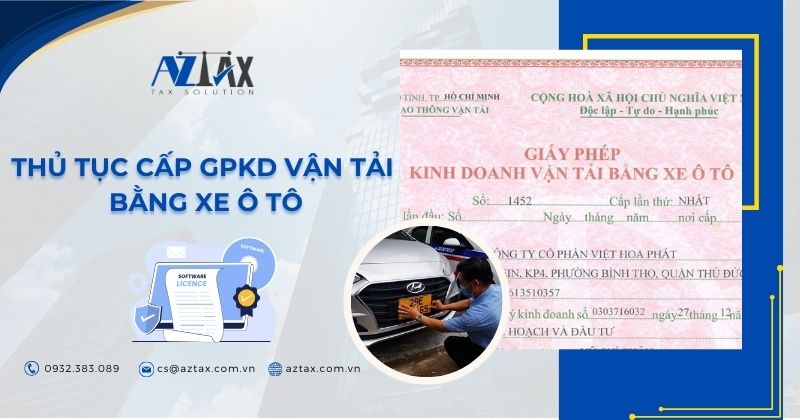Navigating Vietnam’s dynamic business landscape requires a keen understanding of essential business licenses in Vietnam. This comprehensive guide not only explores the diverse array of licenses but also illuminates the intricacies within Vietnam’s legal framework. AZTAX introduces popular Vietnam business licenses and provides insights into the application process, offering valuable information for those seeking to embark on their business journey in Vietnam.
1. Common types of business licenses in Vietnam
1.1 Enterprise registration certificates.
Enterprise registration certificate is one of the most popular business licenses in Vietnam. In compliance with Clause 1, Article 3 of Decree 01/2021/ND-CP, enterprise registration involves the submission of information by the enterprise’s founder for the establishment or modification of details with the business registration authority. This information is maintained in the National Enterprise Registration Database.
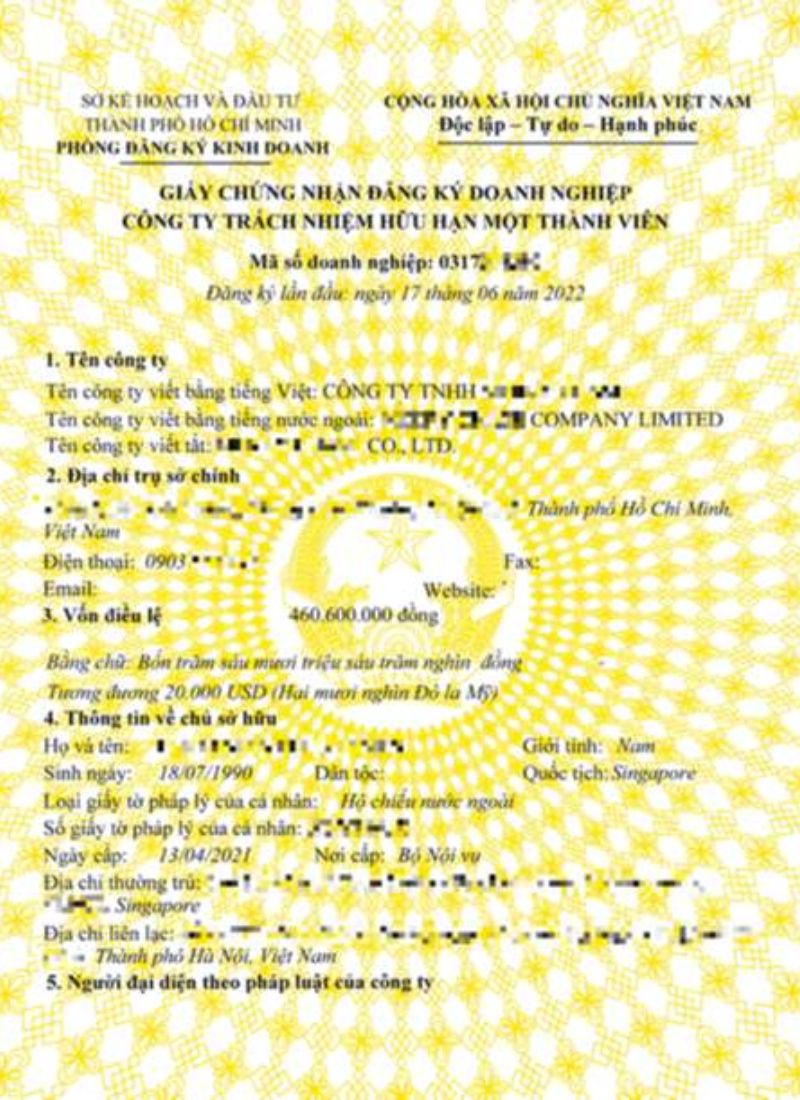
The enterprise registration process encompasses establishing the enterprise, registering the operation of its branch, representative office, or business location, along with fulfilling additional registration and notification requirements as stipulated in Decree 01/2021/ND-CP.
1.2 Certificate of investment registration.
An investment registration certificate is a formal record, either written or electronic, containing the investor’s details regarding investment projects. It outlines proposals for the medium or long-term utilization of capital to engage in business investment activities within specific geographical areas and for a defined timeframe.
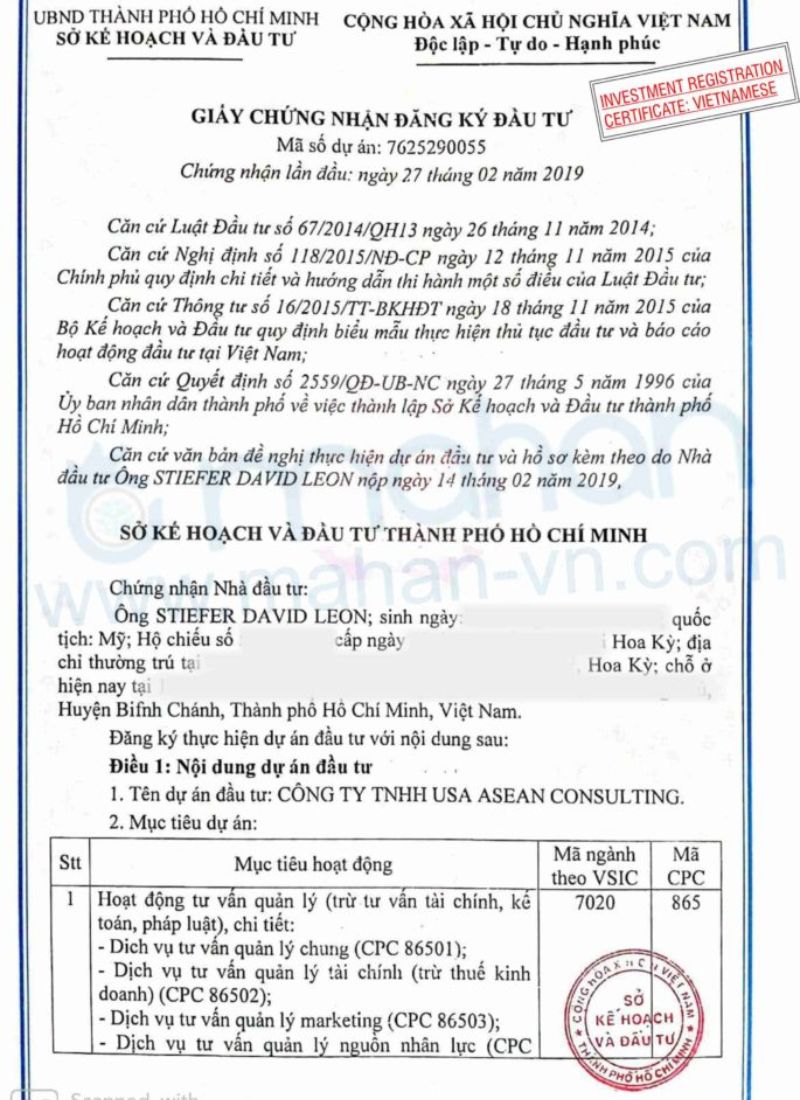
Investors are granted operational authorization based on the specifics outlined in the Investment Registration Certificate. This encompasses project objectives, location, scale, implementation progress, and duration. Additionally, it includes details about investor selection methods, or forms of investors, and any special mechanisms or policies, if applicable, approved by competent state agencies for the execution of investment projects.
1.3 Certificate of Branch office
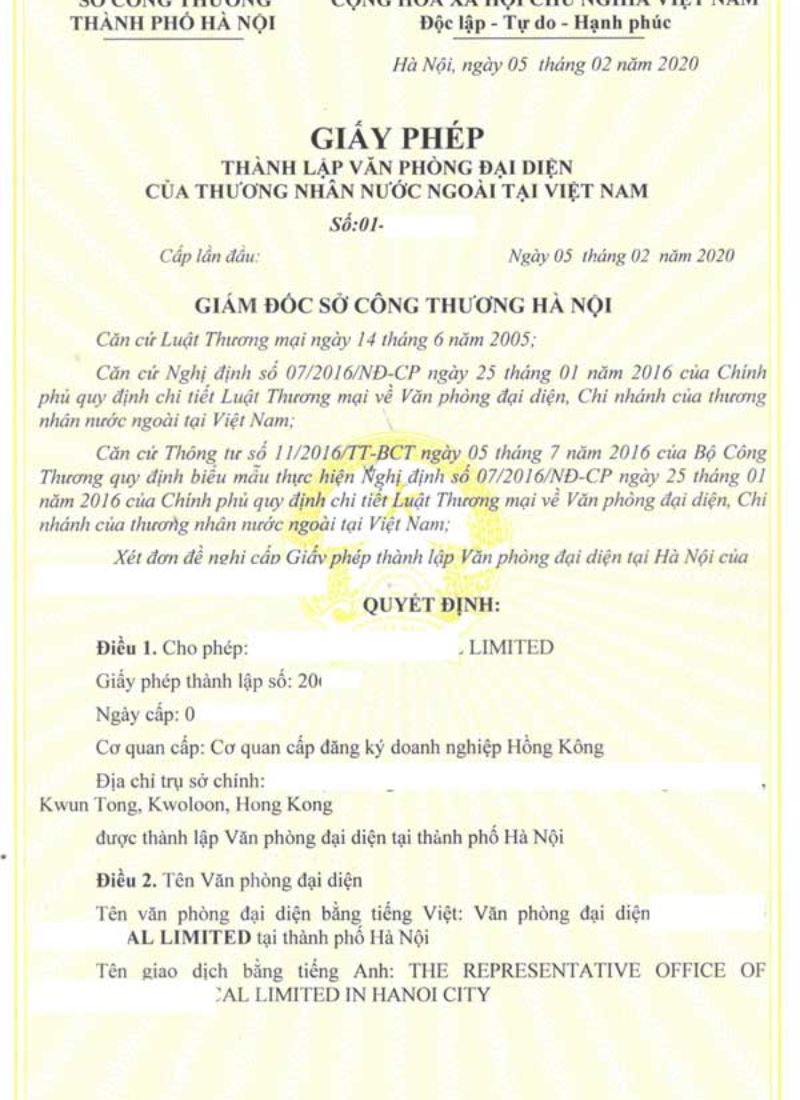
A branch office certificate is also a business license in Vietnam that is issued by the Department, granting authorization to the eligible entity to carry out private investigation activities within the state at a location different from the main business address indicated on the agency license.
1.4 Warehouse registration certificate
A warehouse registration certificate is an official document issued to a business or entity that owns or operates a warehouse. This certificate serves as proof that the warehouse facility has been registered with the relevant authorities and complies with the regulatory requirements for storage and handling of goods. It may include information such as the warehouse’s location, size, permissible activities, safety standards, and other relevant details. Obtaining a warehouse registration certificate is often a necessary step for businesses involved in storing and managing goods to ensure compliance with local regulations.
1.5 Operating license for specific areas.
An operating license for specific areas is an official authorization granted by the relevant regulatory authorities that allows a business or entity to conduct specific activities within designated locations or areas. This license outlines the permissible operations, conditions, and restrictions applicable to the specified areas where the business intends to operate. This ensures that the business complies with local regulations, zoning laws, and other requirements related to the specific geographic locations where it conducts its activities. Operating licenses for specific areas aims to maintain order, safety, and regulatory compliance in those designated regions.
2. How to acquire a business license in Vietnam
Before initiating the application process for a business license in Vietnam, meticulous preparation of required documentation is essential. Different industries, business types, and licenses necessitate specific sets of documents. Precise identification of the requisite components during documentation preparation is crucial for thorough readiness on the business side. Outlined below are the general steps for obtaining essential permits and certifications in Vietnam:
Step 1: Determine the necessary permits and certifications
Depending on the business type, industry, and location, distinct permits and certifications may be mandatory. This could include industry-specific licenses (e.g., for food and pharmaceuticals) and certificates for environmental impact assessments.
Step 2: Research applicable laws and regulations
Understand pertinent laws and regulations related to specific permits and certifications required for the business.
Step 3: Gather essential information and documentation
Collect information about the business, including its name, location, and operational nature. Additionally, compile relevant documents such as certificates of incorporation or articles of association.
Step 4: Submit the application and required documents
Forward your application for the necessary permits and certifications, accompanied by the requisite information and documentation, to the relevant government agency.
Step 5: Pay the required fees
Most permits and certifications entail a fee, which must be settled before application processing begins.
Step 6: Waiting for approval
Following the submission of the application and necessary documents, the government agency will review the materials and make a decision on the application.
Step 7: Receive the permit or certification
Upon approval, the government agency will issue the required permits and certifications.
Note: The specific requisites and procedures for obtaining necessary permits and certifications in Vietnam can vary based on factors such as business type, location, and more. Seeking guidance from consultants, such as AZTAX Consultants is advisable for the latest information.
3. Common risks associated with misconduct in business licenses in Vietnam
Inappropriate business name:
- Failure to comply with legal provisions.
- Name being excessively long, challenging to pronounce, or misleading in English translation or abbreviation.
- Attempting to cover all planned business lines with the business name.
Unrealistic charter capital:
- Falsely declaring high charter capital.
- Declared charter capital lower than required for business scale.
- Failure to declare capital contributions in the form of assets used in operations.
Unclear articles of incorporation with insufficient procedures:
- Failure to specify internal management rules.
- Lack of signatures and stamps from members on each page.
- Inadequate archiving procedures.
- Neglecting revisions as required.
Failure to set up projects or implement tax incentives procedures:
- Neglecting conditions for granting tax incentives.
- Failure to register and optimize tax incentives appropriately.
Failure to apply an appropriate business model:
- Business model unsuitable for business scale and planning.
- Inadequate anticipation of liability and executive management risks, especially in multi-member enterprises.
- Lack of separation between ownership and operations.
Inappropriate capital structure:
- Declaration and registration of cash capital without including assets used in operations.
Failure to collect and archive legal dossiers as prescribed:
- Neglect the maintenance of incorporation registration dossiers.
- Insufficient post-licensed compliance record-keeping.
- Lack of documentation for internal records, especially the code of internal governance issued to shareholders/owners.
Failure to stay updated with current regulations:
- Neglect to apply for amendments following new regulations on business registration.
- Oversight in complying with new regulations related to business licenses.
Other compliance procedures:
- Failure to register business and tax information.
- Inadequate display of signboards at licensed locations.
- Neglecting procedures for printing and issuing invoices.
- Oversight in announcing capital contributions, changes, or updates.
- Insufficient documentation for various legal procedures related to business operations.
Note: Ensuring compliance with all legal requirements is crucial to avoid potential risks and complications in business licensing in Vietnam.



